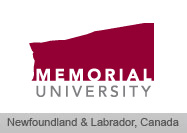Phys 6900 (Experimental Techniques in Condensed Matter Physics)
Time and Place:
Monday, Wednesday, Friday 9:00-10:15am, C-3067
Note: Friday 9:00-10:15am will be utilized for the midterm (week 6), and for project presentations (week 13). First class is on Monday, September 8 at 9 am.
Important Dates:
Project Literature Review Due: Mon, Oct 6, 2008.
Midterm: Fri, Oct 17, 2008.
Instructor:
Anand Yethiraj, CP-3029, phone 2113.
Text and Resources:
Phys 6900 Course Materials
Phys 6900 Project Guidelines
Various, notes, e-resources will be provided.
E-resources:
- Dealing with Uncertainties: A Guide to Error Analysis. Author: Drosg, Manfred.
Evaluation
- Assignments: 30 %
- Mid-term: 20 %
- Project : 30 %
- Final : 20 %
Course Materials
Course Materials will be updated weekly. Please check here for upcoming assignments and readings.
Course Outline
This course is designed to give all graduate students in condensed matter physics (regardless of computational or experimental expertise) an overview of common material char- acterization methods, including practical considerations for implementing these techniques. The emphasis will be on developing breadth of knowledge and understanding the contexts in which certain techniques will be most effective. This includes strengthening the data analysis and curve fitting skills that are required for critical examination of data obtained from these techniques.
Experimental Techniques Project
Project requirements will include a literature search, identifying key and recent papers in the field using the chosen technique, a project oral presentation and written report. See the Project Guidelines for more details.
Any technique that has been used in the study of condensed matter is relevant. Students will be suggested techniques with the aim of broadening their knowledge of experimental techniques. Students will not be allowed to choose topics too close to their thesis topics. Some examples of techniques: photon correlation spectroscopy, coherent anti-Stokes Raman microscopy, rheology, stimulated emission depletion (STED) microscopy, diffusing wave spectroscopy, xray photon correlation spectroscopy, small angle-neutron scattering, neutron reflectometry, dynamic light scattering, time-resolved static light scattering, second harmonic generation, dielectric spectroscopy, optical trapping (optical tweezers), electrokinetic trapping, NMR spectroscopy and microscopy, near-field optical microscopy.






